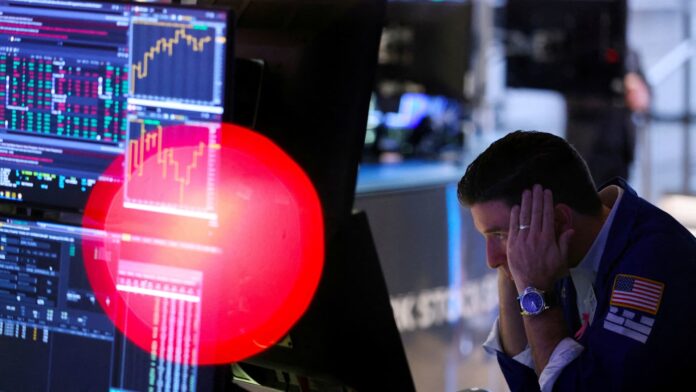Even as the stock market wraps up its worst year since 2008, many Wall Street’s notable investors are warning of more upheaval in 2023 as recession looms. A slew of big investors from David Einhorn to Jeffrey Gundlach and Leon Cooperman have sounded the alarms on the Federal Reserve’s inability to engineer a soft landing. Things look even more dire to Elliott Management, which believes the world could be headed toward its worst crisis since World War II due to hyperinflation. To tame soaring prices, the Fed has hiked its benchmark interest rate to the highest level in 15 years . The S & P 500 has fallen 20.6% this year during the central bank’s aggressive tightening measures, on track for its worst year in 14. “The effects of these rate hikes and the accumulation of quantitative tightening and draining of liquidity from the bond market [are] going to make 2023, in my view, probably a recessionary year,” Gundlach said recently during a DoubleLine investor webcast. Market veteran Howard Marks said in a new memo to clients that a recession in the next 12-18 months appears to be a “foregone conclusion,” and it will likely coincide with deterioration of corporate earnings and investor psychology. Meanwhile, Greenlight Capital’s Einhorn, who is crushing the market with double-digit returns this year, believes the correct posture is to continue to be bearish on stocks as the Fed is deflating the market with jumbo rate hikes. Despite ominous outlooks, high-profile investors are still putting money to work and finding opportunities in the turmoil. For investors looking for a way to ride out the storm in one piece, here are where the biggest investors are hiding out. Emerging markets Bond King Gundlach said it’s time to buy emerging market stocks as the dollar has likely hit its peak. The dollar has rallied against every major currency this year, boosted by the Federal Reserve’s jumbo interest rate hikes as it battles inflation. The DXY US Dollar Currency Index is up 8.6% this year, but it has fallen 9% from a 20-year high of 114.78 on Sept. 28. The iShares MSCI Emerging Markets ETF (EEM) is down about 22% this year, underperforming the S & P 500. Cash Cash, one of the most hated corners of the market for years, has gotten some newfound love as risk assets remain stuck in a rout. Cash equivalents were the only major asset class that gained in the third quarter with a 0.5% return, while the S & P 500 suffered a 5% loss for the period, according to Bank of America. Treasury bills are yielding north of 3% across maturities with some topping 4%. Billionaire investor Ray Dalio recently said he’s changed his mind about his long-held belief that cash is trash. Paul Tudor Jones also echoed the sentiment, seeing value for cash even in the face of surging inflation. Einhorn recently revealed that he has reduced his gross long exposure substantially this year and he expects to have additional dry powder. Meanwhile, rising rates have enabled Berkshire Hathaway’s considerable cash balance to earn a competitive return this year. Credits Oaktree Capital Management’s Marks said we are in the midst of the market’s third-ever sea change in his 53-year investing career, marked by higher rates and safer returns. Investors can potentially get solid returns from credit instruments and no longer have to rely as heavily on riskier investments to achieve their overall return targets, said the widely followed money manager. Gundlach said the bond market has become the most attractive he’s seen in 10 years , adding investors could easily get an 8% annualized return. Buying safe government bonds allows investors to shop for riskier, more opportunistic credits in the market, Gundlach said. Spreads on non-Treasurys have widened, including guaranteed mortgages, junk bond yields, emerging market debt and asset back securities, he added.
© heardonwallstreet.com


